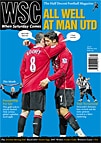 The Icelanders have only been in charge at Upton Park for a few weeks, but it’s already getting frosty. Darron Kirkby examines the small print on a deal that promised rather more than it has delivered
The Icelanders have only been in charge at Upton Park for a few weeks, but it’s already getting frosty. Darron Kirkby examines the small print on a deal that promised rather more than it has delivered
When the directors of West Ham United accepted WH Holding’s offer to buy the club for £85 million on November 21, Hammers fans breathed a sigh of relief that the focus could return to the relegation battle. On paper, the deal sounded good. Not only was the Icelandic consortium taking on the club’s £23m debt, but it was pledging a £40m war chest for Alan Pardew to spend in the January transfer window.
The club had been at the centre of rumours about a takeover by Media Sports Investment (MSI) for months. This intensified when Carlos Tévez and Javier Mascherano, whose registrations are owned by former MSI president Kia Joorabchian, moved to E13 in mysterious circumstances in August. But while MSI seemed unwilling to pay the asking price, rival consortia entered the picture. A group of English businessmen fronted by Tony Cottee was rumoured to be sniffing around, but it was a consortium fronted by “biscuit baron” Eggert Magnusson, who was head of the Icelandic FA and a member of the UEFA executive committee, that emerged as the main rival.
West Ham chairman Terry Brown seemed reluctant to countenance the Icelandic bid at first, but MSI’s quibbling about the price, and support for Magnusson from within UEFA and FA, saw him allow the consortium to carry out due diligence on the club’s accounts. Magnusson is backed by Björgólfur Gudmundsson, chairman of the Icelandic bank Landsbanki, who now owns a 95 per cent stake in West Ham.
Brown has been heavily criticised for selling the products of the West Ham academy and not investing his own money in the club. He has certainly done very nicely from the takeover: not only has he received £33.4m for his stake in the club, but he is staying on as deputy vice-chairman on his chairman’s salary of £492,000 a year until at least 2009. He gets eight seats in the directors’ box and even continues to earn bonuses of up to £400,000, depending on the team’s achievements. But he is a West Ham man, and perhaps his initial reticence to entertain the Magnusson bid was the result of the financial complexities of the WH Holding deal.
The Icelandic company has put up £100m, of which £85m has gone straight into the pockets of the shareholders. The costs of preparing the bid and employing solicitors and accountants has been estimated at £5m, while former managing director Paul Aldridge, who left immediately, and Alan Pardew have had to be paid off. Another £23m is required for existing debt, such as outstanding payments to Norwich for Dean Ashton. The £100m investment took the form of new shares in the club, otherwise known as “loan notes”. But, as their name implies, these have to be repaid. In effect, the club are paying for their own takeover through a £100m loan repayable over ten years, with £5m a year in interest – £150m in total.
Gudmundsson will either repay himself the full amount he paid for the club or can sell the loan notes to new investors. None of the loan notes has yet been disposed of, but Magnusson has admitted they are seeking new investors to help pay off the club’s mounting debts. There have been rumours that the real funding for the takeover has come from Russia and conspiracy theorists are already whispering that there is a Mr Big pulling the strings at Upton Park, who was behind the sacking of Pardew. Dropping out of the Premiership with such huge debts would be unthinkable, so such a theory could help explain Magnusson’s and Gudmundsson’s declaration of support for Pardew just four days before he was sacked.
Magnusson has said that there is no intention of paying dividends for the next few years and that investors will receive a payout only if the club’s commercial success warrants it. He has also assured fans that the takeover of West Ham is in no way secured against the club’s assets and that the club have no repayment obligations in relation to the financing of the deal. But Magnusson also pledged not to sack Pardew – and within ten days Alan Curbishley had his feet under the manager’s desk.
Curbishley, meanwhile, must be rubbing his hands at the prospect of spending a rumoured £40m in the transfer window. But the balance from the £100m “loan” is only about £10m – and half of this is needed each year to finance the loan. So raising such a war chest will require more loan notes, more borrowing and more debt. Magnusson’s plan to convert the Olympic stadium in Stratford into the club’s new home after 2012 will not come cheap, either. Sometimes you just have to look a gift horse in the mouth.
From WSC 24o February 2007. What was happening this month